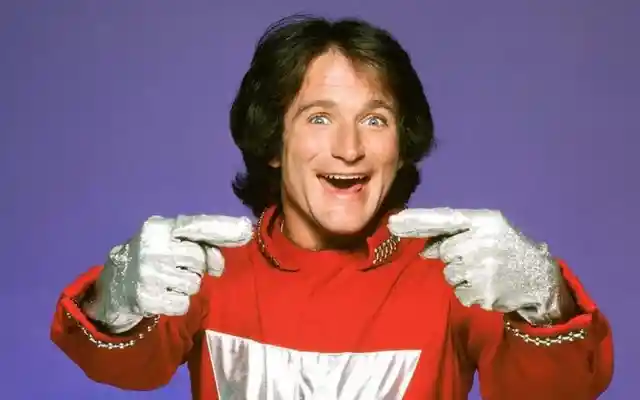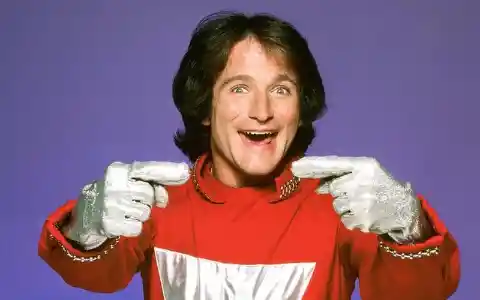One of the most celebrated actors of our time who was often labeled a comedic "genius", the late Robin Williams truly was one of a kind. His diverse roles won him several accolades, and his standup routine influenced a generation of comedians.
To think that this amazing man was discovered by accident... he started off as a last-minute replacement on a television show, and that later led to its own spinoff. The future Oscar winner would go onto showcase his many talents in the ensuing decades, be it on stage, television, or film.
Unafraid to speak candidly about his personal struggles on stage, seamlessly jumping from one impression to another, and possessing a set of improvisational skills, dare we say, no one could surpass, Robin Williams is a true icon of not only the silver screen but popular culture as a whole.
Join us as we learn about the legendary man who entertained audiences for almost a half century.
A Laugh For Attention
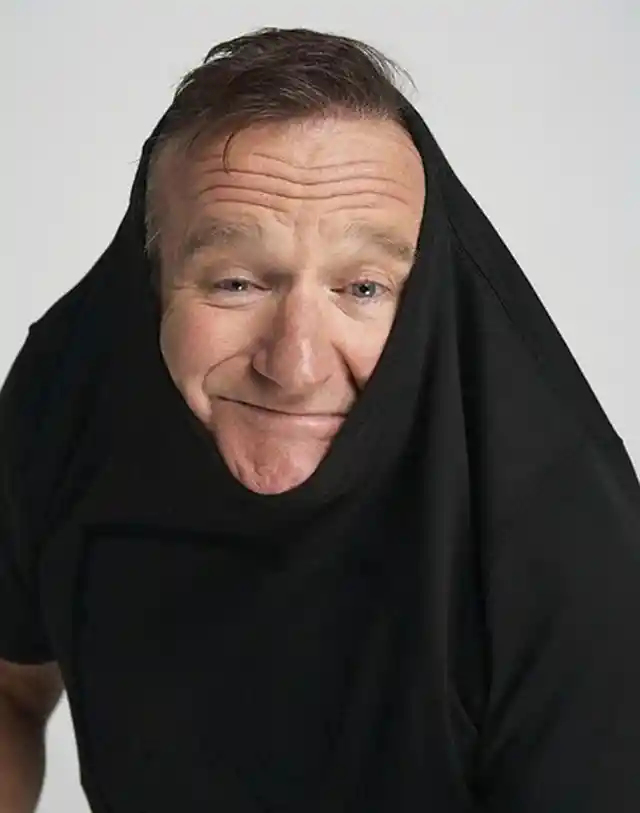
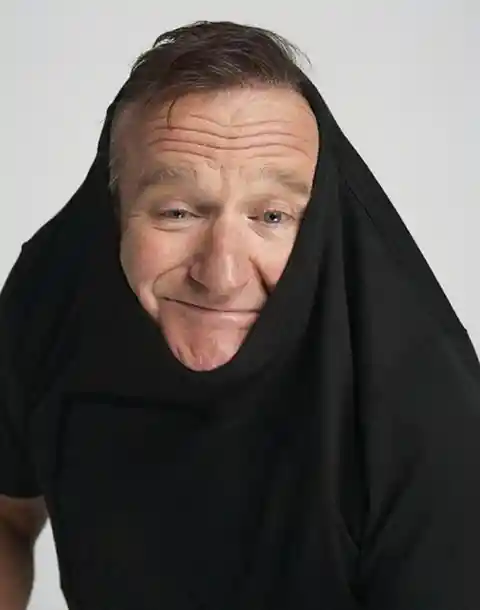
Robin McLaurin Williams was born on the 21 July 1951 in Illinois, Chicago to a senior executive father working at a motor company, and former model mother. The future Oscar winner also had two elder half-brothers, one each from his parents' previous relationships.
Williams later credited his mother as being an important influence for his sense of humor, saying that he tried to make her laugh to gain attention. Williams says his first ever impression was of him imitating his grandmother to his mother.
Overcoming Shyness

Williams schooling began at a public elementary school in Lake Forest. Williams described himself as a quiet, shy child who did not overcome his shyness until he was involved with his drama department. His friends recall him as being very funny. At age 12, his father was transferred to Detroit where the family lived in a 40-room farmhouse on 20 acres in suburban Michigan. Williams attended a private country school during this time.
Click next to see what made him tick:
"Most Likely Not To Succeed"
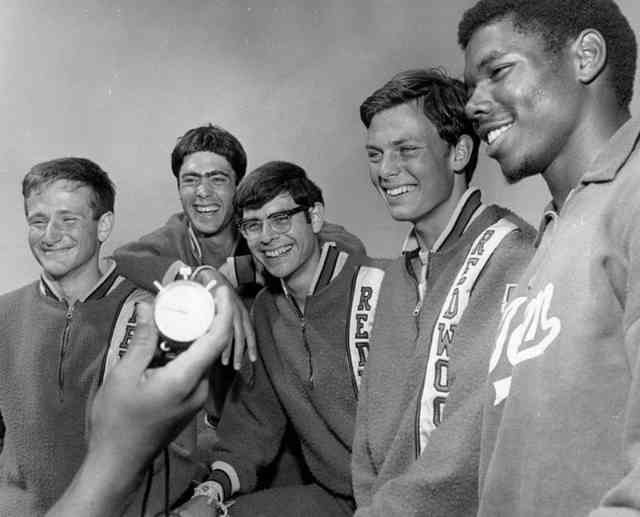
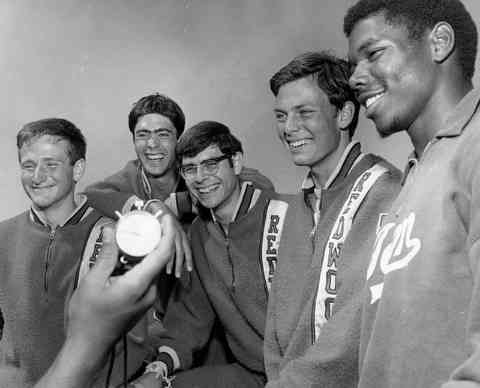
The family were on the move again as Williams's father chose to retire early and subsequently moved the family to Tiburon, California. Attending a public high school, Williams joined the school's soccer, and wrestling teams, and was also elected class president. At the time of his graduation in 1969, the teenager was voted by his fellow classmates "Most Likely Not to Succeed" and "Funniest".
Class Clown

Following high school, Williams enrolled to study political science at a private liberal arts college, however, he soon dropped out to pursue acting. Williams studied theatre for three years at a community college, with the college's drama professor recalling how the depth of the young actor's talent first became apparent to him when he was cast as Fagin in the musical Oliver! During his time in the college's drama program, Williams was known to improvise as well as leaving his cast members in hysterics.
Winning A Prestigious Scholarship
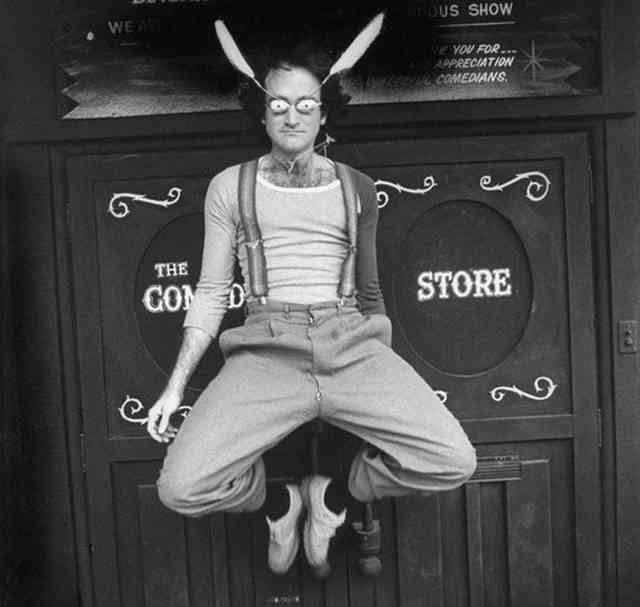
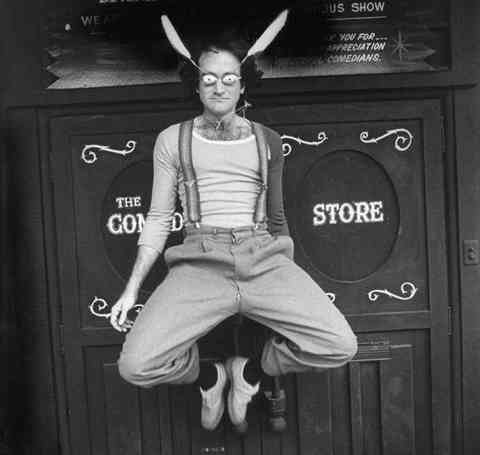
His college drama professor one time called his wife after a rehearsal to tell her Williams "was going to be something special." Williams was awarded a full scholarship to the prestigious Julliard School in New York City in 1973. He was one of 20 students to be accepted into the freshman year and only one of two to be accepted into the Advanced Program of the school the same year.
"An Untied Balloon That Had Been Inflated"

It was at Julliard that Williams met future Superman actor Christopher Reeve, as well as Mandy Patinkin, and William Hurt. Reeve's remembered his first impression of Williams at Julliard: "He wore tie-dyed shirts with tracksuit bottoms and talked a mile a minute. I'd never seen so much energy contained in one person. He was like an untied balloon that had been inflated and immediately released. I watched in awe as he virtually caromed off the walls of the classrooms and hallways. To say that he was "on" would be a major understatement."
Silencing His Critics
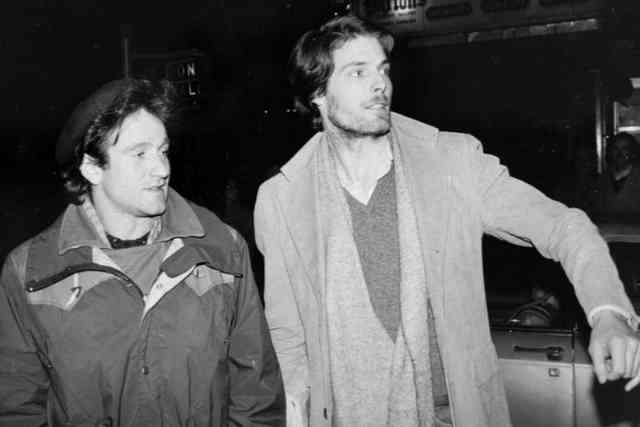
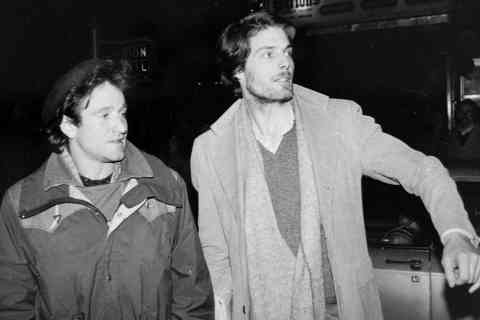
Williams prodigious talent was such that even his superiors at Julliard were dumbfounded by him at times. His dialect teacher didn't know what to make of him, seeing as he could instantly perform in many dialects, such as Scottish, Irish, English, Russian, and Italian. The main acting teacher was "equally baffled by this human dynamo," according to Reeve. Despite criticism by his teacher as a stand-up comedian, Williams went on to silence his critics with his portrayal of an old man in Tennessee Williams play The Night of the Iguana.
A Super Friend

After Reeve's tragic horseriding accident in 1995 which led to him being paralyzed from the neck down, Williams showed up at the hospital pretending to be an eccentric Russian proctologist preparing to perform a rectal exam. Reeve later claimed this was the first time he had ever laughed since the accident, and credits the moment from preventing him sinking into depression. The two remained close friends until Reeve's death in 2004, with Williams paying many of Reeve's medical bills as well as giving financial support to his family.
Too Cool For School
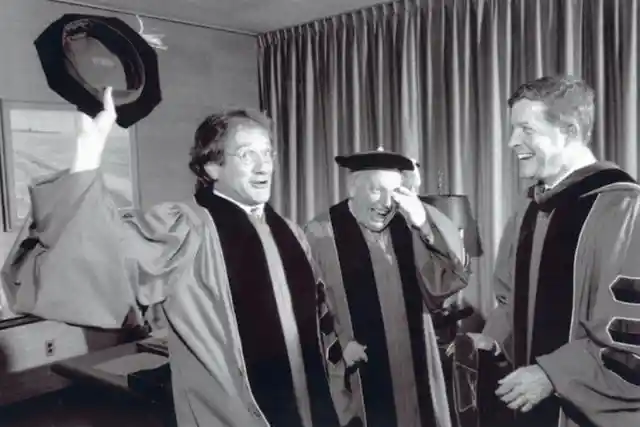
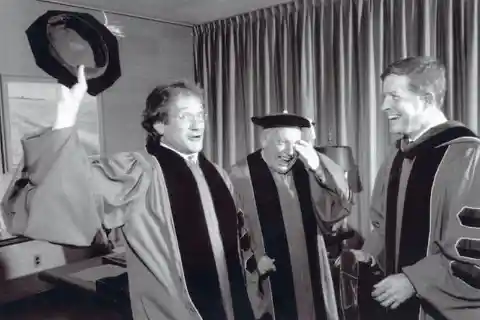
Williams would eventually leave Julliard during his junior year in 1976 at the suggestion of its director of drama, acclaimed film producer John Houseman, who told him there was nothing more the school could teach him. Years later, Williams would later receive an honorary degree from the school. One of Williams teachers noted that Williams' "genius" simply didn't suit the school's conservative and classical style of training. During his time at Julliard, Williams at one point performed as a mime outside New York City's Metropolitan Museum of Art.
Take Me To Church

After Williams left Julliard, he returned to San Francisco, however, struggled to find work. Seeing a notice for a comedy workshop in a church, he decided to give it a go. “So I went to this workshop in the basement of a Lutheran church, and it was stand-up comedy, so you don’t get to improvise with others, but I started off doing, ostensibly, it was just like improvising but solo," he revealed to NPR. "And then I started to realize, ‘Oh.’ building an act from there."
A Chance Encounter
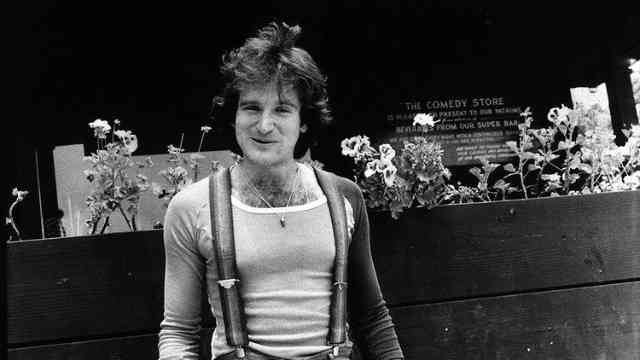
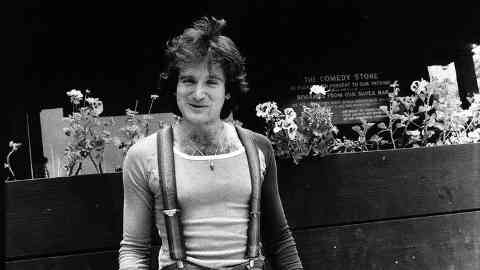
From the mid-1970s, Williams began doing stand-up comedy shows at various clubs, including the Comedy Club in 1977. It was here that a TV producer saw him and realizing he would become an important player in show business asked him to appear on his show. Williams also performed shows at the LA Improv comedy club as well as for HBO (Home Box Office). This soon led Williams to a career in television. He continued doing stand-up comedy to keep his improvisational skills sharp.
Inspirations And Influences

Williams cited several other comedians for influencing and inspiring him. He attributes their ability to attract an intellectual audience by using a higher level of wit as an influence. He said he liked Jay Leno for his quickness in ad-libbing comedy routines while naming Jonathan Winters as his "idol" after first seeing him on television when Williams was eight years old. Williams also noted that watching Monty Python's Flying Circus helped him understand comedic timing.
Laughter Is The Best Medicine
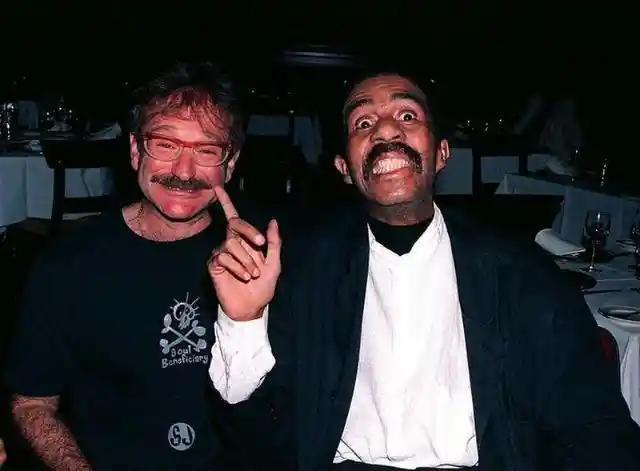
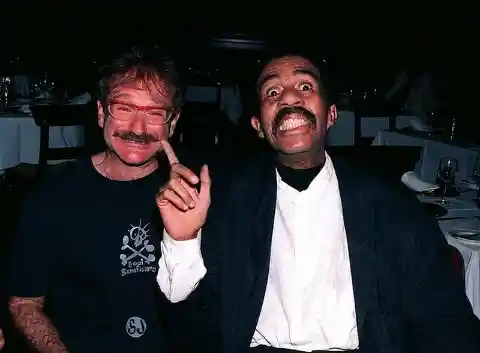
Another important comedic influence on Williams was Richard Pryor who's fearless ability to talk about his own personal life's struggles on stage such as his abuse of drugs and alcohol, helped him speak about it in his own comedy routines on stage. Williams said bringing up personal matters as a form of comedy was "cheaper than therapy" as it gave him a release for his energy and emotions. Williams also stated of Peter Sellers, another one who influenced him, that, "It doesn't get better than that," referring to his multi-character role in Dr. Strangelove.
Grammy Award Winner

In 1979 Williams won a Grammy Award for the recording of his live show "Reality...What a Concept" in New York City's Copacabana. Even after he became a television and film star, Williams would continue to tour. Often tickets were sold out within half-an-hour of going on sale. Williams said that the stress of performing stand-up partly contributed to him starting to use drugs and alcohol.
A World Of Ideas
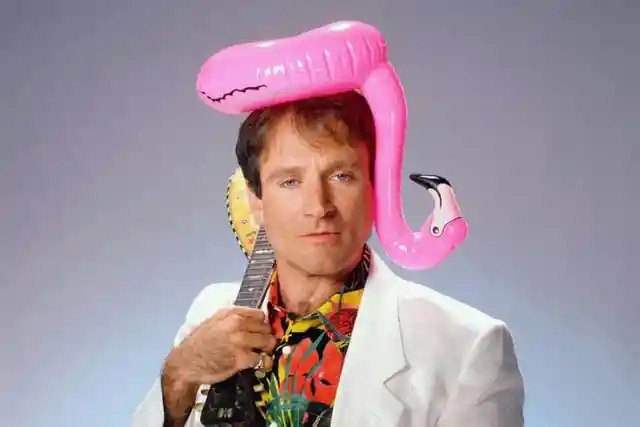
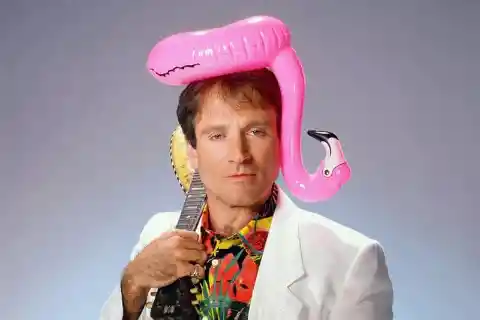
Some comedians accused Williams of intentionally copying their jokes. However, Williams strongly denied ever doing so, and always felt secure that he would not struggle for ideas due to the constant change in world events. He also explained that he often used the free association of ideas in order to keep audiences engaged. Williams later avoided even attending other comedians shows to prevent accusations.
An Out Of This World Performance

Williams won a guest role on a 1978 episode of popular television series Happy Days, "My Favorite Orkan" as a last-minute replacement. Williams impressed the director by sitting on his head when asked to take a seat at the audition. The cast, crew and network executives were highly impressed with Williams' performance, most of which was improvised. Williams spoke in a high, nasal voice and also used physical comedy in his portrayal. Viewers liked it so much, that it led to a spin-off television sitcom Mork & Mindy which ran from 1978 to 1982.
A Television Star
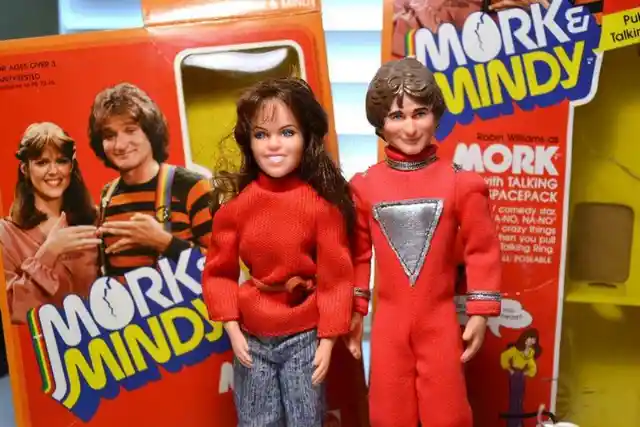
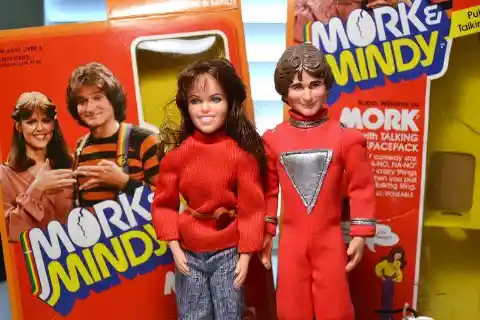
Mork & Mindy proved instrumental in Williams' success as the show was watched by 60 million viewers at its peak. Mork was an extremely popular character as he was featured on posters, coloring books, lunch-boxes, and other merchandise, as well as leading Williams to appear on the cover of Time magazine in the 12 March 1979 issue. Williams also made it to the cover of the 23 August 1979 Rolling Stone magazine. Williams was so good at improvising that the writers of the show would deliberately leave gaps in the screenplay for the actor to fill in.
Stand-Up Comedy Specials

From the late 1970s through the 1980s, Williams increasingly reached a wider audience as a result of his stand-up comedy specials on HBO and television appearances. He was a regular guest on The Tonight Show Starring Johnny Carson and Late Night with David Letterman, where he appeared 50 times. Letterman, upon seeing Williams perform standup remembers thinking, "There goes my chance in show business."
Appearance On Friends
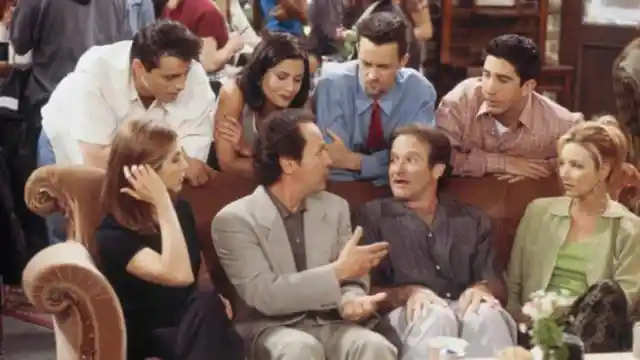
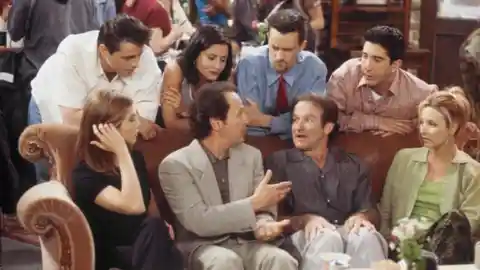
Williams television credits include an unscripted cameo with fellow actor and comedian Billy Crystal on the sitcom Friends. They happened to be in the building where the show was shooting and were asked to improvise the entire scene, which they did. He also made appearances on improvisational comedy show Whose Line Is It Anyway?, as well as guest appearances on Law and Order: SVU, a sketch with Robert De Niro on Saturday Night Live, and a few lesser known shows such as the short-lived The Crazy Ones.
Starring On The Big Screen

Williams first major big-screen role came in the film adaptation of the comic strip and television cartoon Popeye in 1980 where the actor plays the titular character. His next films were The World According to Garp (1982), The Survivors (1983) and Club Paradise (1986), none of which were particularly memorable. Williams noted the roles didn't help advance his film career, although in playing the eponymous Garp he said it "may have lacked a certain madness onscreen, it had a great core". In 1986, Williams co-hosted the 58th Academy Awards, the following year he would win.
Silver Screen Breakthrough
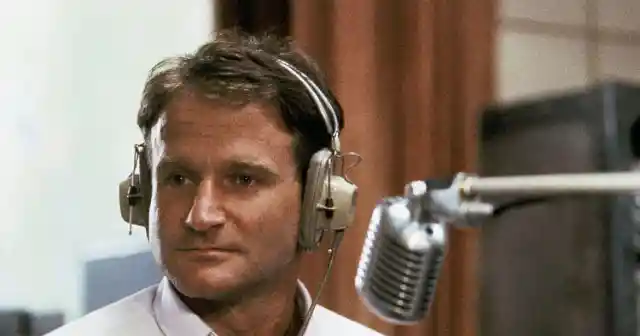
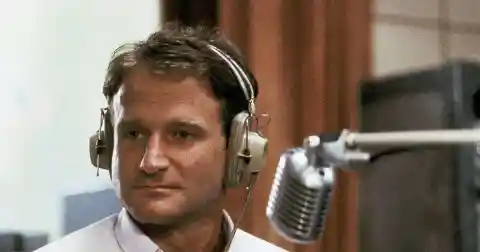
Williams film breakthrough would come in 1987's Good Morning, Vietnam. Williams plays Adrian Cronauer, a radio shock jock who entertains troops with his comedy and sarcasm. For his performance, Williams would be nominated for an Academy Award for Best Actor. The actor was given permission to play his role without a script as he improvised most of his lines. "We just let the cameras roll," said producer Mark Johnson, and Williams "managed to create something new for every single take."
The Oscar Goes To...

Most of Williams later films contained a touch of sadness in them. His roles in Dead Poets Society (1989) where he plays an English teacher, and The Fisher King (1991) where he plays a homeless man, each garnered him Academy Award nominations. For his role as a psychologist for the protagonist in the drama Good Will Hunting (1997), Williams won the Oscar for Best Supporting Actor. His performance was so believable that it even influenced some real therapists according to the Huffington Post.
A Grown Up In Neverland?
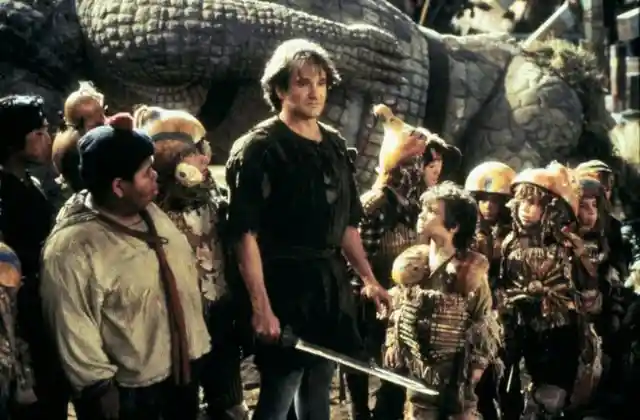
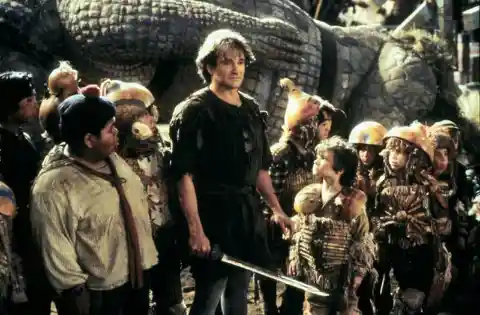
The actor showcased his versatility in a number of different roles. In 1991, the actor played an adult version of Peter Pan in the fantasy adventure film Hook. In 2002's psychological thriller Insomnia, he played a writer/killer on the run. The same year he played an emotionally disturbed photo development technician who becomes obsessed with a family in One Hour Photo. His other acclaimed films include Moscow on the Hudson (1984), Awakenings (1990), What Dreams May Come (1998), and Bicentennial Man (1999).
Multi-Award Winner

1993's comedy-drama Mrs. Doubtfire is another one of Williams most iconic roles. The plot follows a recently divorced actor who dresses up as a female housekeeper in order to interact with his children. The film touches on the subjects of divorce, separation, and the effects it has on a family. Williams won the Golden Globe for Best Actor in a Motion Picture Musical or Comedy for his portrayal. In total, Williams received six Golden Globe Awards, an Academy Award, four Grammys, three Emmys, two MTV Movie Awards, and two Screen Actors Guild Awards.
Inspirational Colleagues
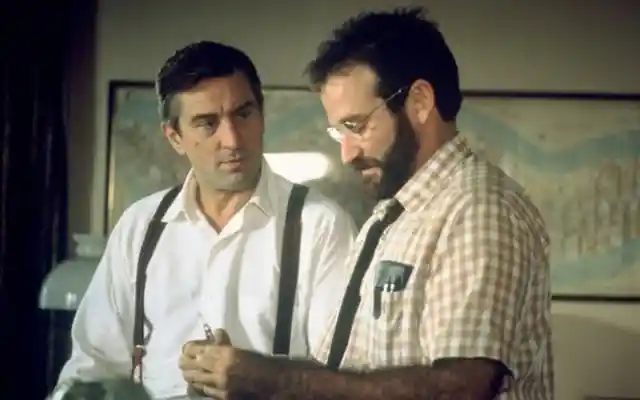
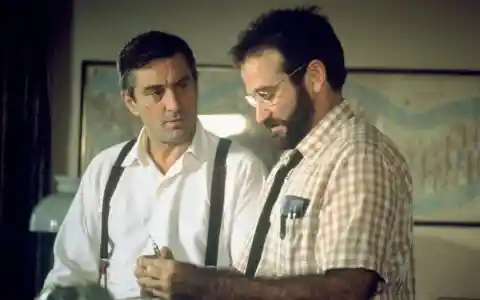
Williams credited Robert De Niro for teaching him the power of silence and economy of dialogue when acting in order to portray deep-driven men. He also cited Dustin Hoffman for teaching him how to take on different characters by transforming them through extreme preparation. Terry Gilliam, who directed Williams in two films noted in 1992 how Williams possessed the ability to "go from manic to mad to tender and vulnerable." He added that he considered Williams possesses "the most unique mind on the planet. There's nobody like him out there."
Turning 200 Into 20,000,000

The highest single paycheck Williams received came from the 1999 movie Bicentennial Man, for which he was paid $20 million. His lowest paycheck was for his voice work in the 1992 Disney animated film Aladdin where he was paid $75,000, the Screen Actors Guild minimum. In 1996, the actor achieved the rare feat of once having two movies reach $100 million in box office receipts in the same week. The two films were Jumanji and The Birdcage.
Too Good For The Academy Awards
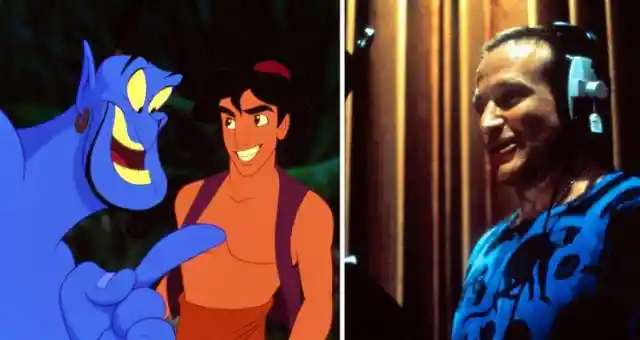
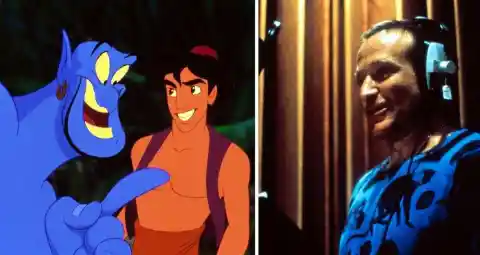
In order for Disney to woo Williams into the role of Aladdin's Genie, the studio animated and lip-synced the Genie performing William's stand-up comedy. Williams was so impressed that he signed on immediately. Williams improvised so much of his dialogue in the animated film that the script was rejected by the Academy for Best Adapted Screenplay. Williams stated that "in the end, there were something like 40 different voices" he recorded for the role.
Setting A Trend

Williams voice acting performance as Genie in 1992's animated film Aladdin was instrumental in paving the way for other animated films to incorporate actors with more star power for voice acting roles. Totalling 30 hours of tape, Williams improvises much of his dialogue and impersonates several celebrities. Williams took the role with certain conditions: "I'm doing it basically because I want to be part of this animation tradition. I want something for my children. One deal is, I just don't want to sell anything—as in Burger King, as in toys, as in stuff."
The Million-Dollar Painting Apology
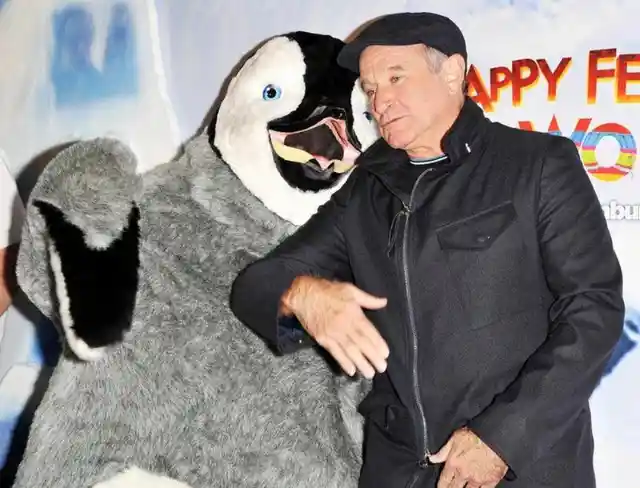
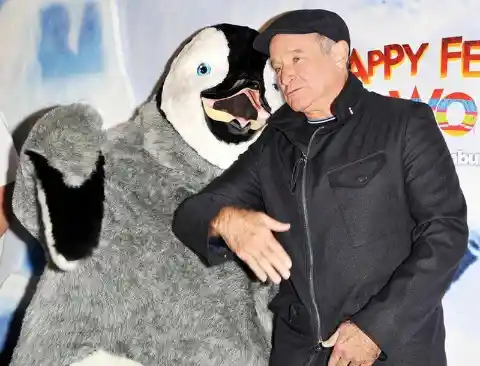
Disney ended up using Williams' voice to sell merchandise from the movie, against Williams' wishes. "I don't want to sell stuff. It's the one thing I won't do," he explained to New York Magazine. Disney tried to make it up by sending him a $1 million Picasso painting, where the artist imagines himself as Vincent Van Gogh. Williams' voice would later feature in several other animated films such as Aladdin and the King of Thieves, Everyone's Hero, Happy Feet, Happy Feet 2, and Robots, as well as the holographic Dr. Know character in the live-action film A.I. Artificial Intelligence.
Third Time's A Charm

Williams was married three times. He married his first wife Valerie Velardi in 1978 after the two met while he was working as a bartender at a tavern in San Francisco. The couple have one son Zachary Pym "Zak" Williams (1983). They divorced in 1988. Williams' second marriage was to his son's nanny which began in 1986 while he was still married to his first wife. His second marriage in 1989 resulted in two children, Zelda Rae (1989), and Cody Alan (1991). They divorced in 2010. The actor's third wife was graphic designer Susan Schneider, whom Williams married in 2011.
The Fun Father
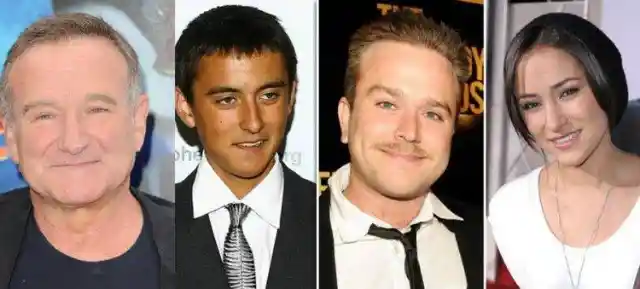
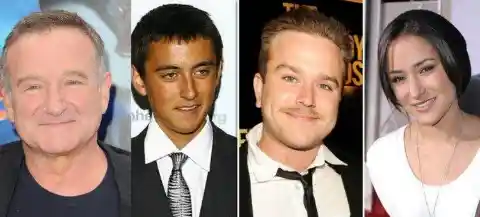
Williams was an enthusiast of role-playing-games in board game and video game forms. In fact, His daughter Zelda was named after the title character from The Legend of Zelda, which was a family favorite video game series. His favorite books were the Foundation trilogy by Isaac Asimov, while his favorite book as a child was The Lion, The Witch, and The Wardrobe, which he later shared with his children. Regarding his children, Williams stated, "My children give me a great sense of wonder. Just to see them develop into these extraordinary human beings."
Half The Religion, Half The Guilt

Williams was a member of the Episcopal Church. He explained his denomination in a comedy routine, saying,"I have that idea of Chicago protestant, Episcopal—Catholic light: half the religion, half the guilt." He has also described himself as an "honorary Jew". On Israel's 60th Independence Day in 2008, the actor appeared in Times Square, along with several other celebrities to wish Israel a happy birthday.
Comic Relief
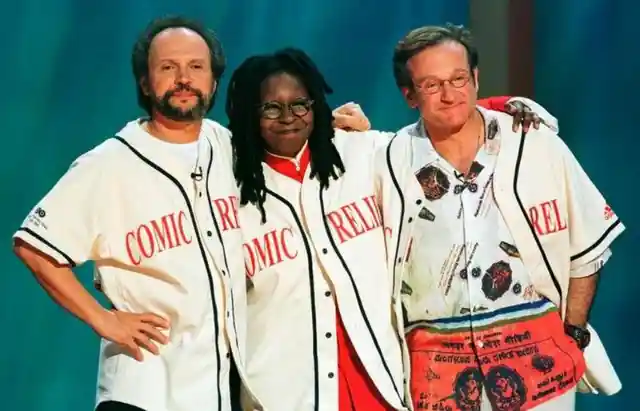
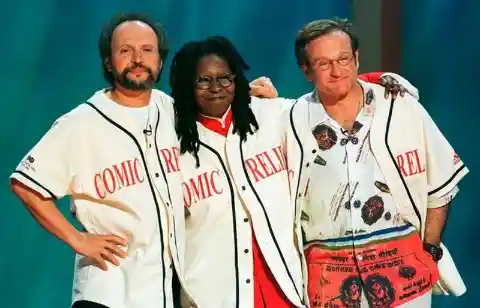
Williams felt blessed because he came from a wealthy family home and wanted to do something to help those less fortunate. Together with Whoopi Goldberg and Billy Crystal, the trio founded Comic Relief USA. As of 2014, the annual HBO television benefit devoted to the homeless has raised over $80 million. The actor also made appearances to support literacy, and women's rights, as well as appearing at benefits for veterans. Williams regularly performed on the United Service Organizations' circuit, traveling to 13 countries and performing to approximately 100,000 troops.
An Early Wake-Up Call

During the late 1970s and early 1980s, Williams became addicted to cocaine. It was the death of his friend, John Belushi, who died from a drug overdose (which happened the morning after the two comedians partied together), along with the birth of Williams' son Zak, which caused the actor quit drugs and alcohol. Williams would say of his decision, "Was it a wake-up call? Oh yeah, on a huge level. The grand jury helped, too." Williams turned to exercise and cycling to help fight his depression following Belushi's death.
No Laughing Matter
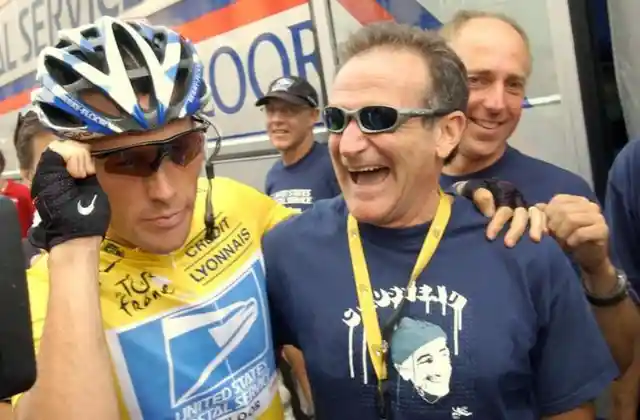
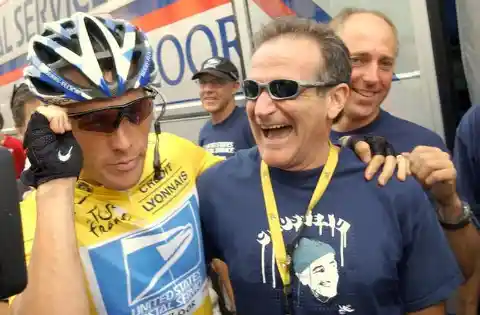
Williams was a huge fan of cycling, so much so that he would train with Lance Armstrong at times. According to ESPN, he would even ride shotgun in Armstrong's team car in several races and attended the Tour de France frequently. Williams once rode with the former professional cyclist during an off day at the 2002 Tour de France. However, following Armstrong’s admission of guilt for doping on The Oprah Winfrey Show, Williams began distancing himself from the cyclist.
Falling Off The Wagon

Williams sobriety would be broken in 2003 as the actor started drinking alcohol again while filming in Alaska. In 2006 the actor checked himself to rehabilitation in Oregon saying he was an alcoholic. In mid-2014, the actor admitted himself to an addiction treatment center in Minnesota, citing alcoholism. Williams never returned to using cocaine, however, stating, "No. Cocaine—paranoid and impotent, what fun. There was no bit of me thinking, ooh, let's go back to that. Useless conversations until midnight, waking up at dawn feeling like a vampire on a day pass. No."
Silently Suffering
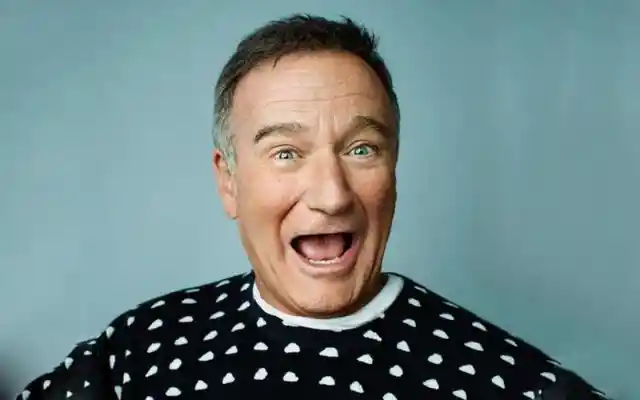
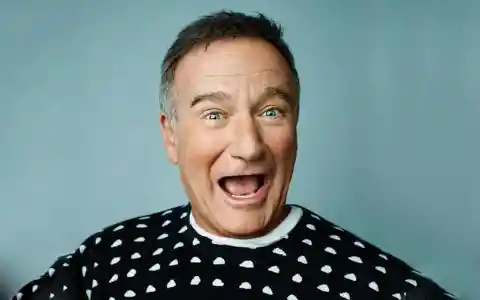
Williams' publicist commented that he was suffering from severe depression prior to his death. His wife, Susan Schneider, noted that in the years before his death, Williams had been sober, but was diagnosed with early-stage Parkinson's disease. Two years after his death, Schneider revealed the pathology of Lewy body dementia which Williams suffered from was described by several doctors as among the worst pathologies they had seen. Schneider revealed, "Robin was losing his mind and he was aware of it ... He kept saying, 'I just want to reboot my brain.'"
"Recent Increase In Paranoia"

On 11 August 2014, Williams committed suicide at his home in California. He was cremated and had his ashes scattered in San Francisco Bay on August 21. The final autopsy report revealed that the actor's death was due to "suicide due to asphyxia". Neither alcohol or drugs were involved. The report also noted Williams was suffering from "a recent increase in paranoia". After an examination of his brain tissue revealed the actor to be suffering from Lewy body dementia, his wife noted, the disease as "the terrorist inside my husband's brain".
The Brightest Star In The Galaxy
